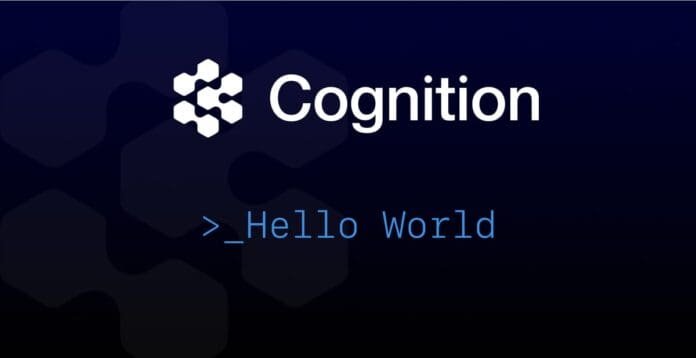Devin, an application developed by Cognition AI, is considered a revolutionary development in computer reasoning. As a fresh iteration of “Are We in a Bubble?!”, the most exhilarating game in Silicon Valley, has started. At this juncture, the game’s premise is based on whether artificial intelligence technology is positioned to bring about a paradigm shift comparable to or even more profound than the consumer internet or if it will stall and provide us with some progress but not an entirely new global economy.
The interface of this game is complex, and the information provided is frequently confusing rather than illuminating. For example, consider Cognition AI.
This startup is highly unlikely to be familiar to you, in one part due to its attempt to maintain secrecy and in another part because it ceased to be a legally recognized corporation only two months ago. Even though its ten-person staff has been dividing their time between home offices in New York and Airbnbs in Silicon Valley.
This incredibly, extremely young company has raised $21 million from Founders Fund, a venture capital firm founded by Peter Thiel, and other renowned investors, including Ex-Twitter executive Elad Gil. They are placing their bets on the team of Cognition AI and its flagship product, Devin.

Devin functions as an advanced software development assistant comparable to Copilot, a software development assistant developed by GitHub, Microsoft, and OpenAI. Devin is not limited to providing coding recommendations and automating certain duties; it can independently undertake and complete an entire software project. You provide it with a task—for instance, “develop a website that maps every Italian restaurant in Sydney”—and the software executes a search to locate the restaurants, retrieves their contact details and addresses, and subsequently constructs and publishes a website that presents the acquired information. Devin demonstrates the execution of each task it undertakes and independently identifies and resolves defects while testing the code in progress.
Cognition AI was established by its three founders: chief executive officer Scott Wu, chief technology officer Steven Hao, and chief product officer Walden Yan. Recently, Hao held a prominent engineering position at Scale AI, a highly regarded startup specializing in the training of AI systems. Because he has not yet had “the talk” with his parents, Yan, who was an undergraduate at Harvard University until recently, asked that his status at the university remain ambiguous. He is a pleasant young man whose peers regard him as an extraordinary talent.

Neal Wu, who is also employed by Cognition AI, is Wu’s 27-year-old sibling. Two individuals renowned worldwide for their computing expertise: Since their adolescent years, the Wu brothers have participated in and frequently emerged victorious in international coding competitions. In recent years, their contributions have significantly enhanced the standing of the United States national coding team when compared to its competitors from China and Eastern Europe.
Sport coding, which is indeed a genuine thing, demands individuals to program quickly and precisely while solving puzzles. It additionally instructs participants on how to tackle challenges using innovative strategies. Cognition AI is replete with programmers specializing in sports. Scott Wu claims that the ten gold medals gained by his team’s people at the preeminent international competition give his startup a competitive advantage in the AI wars.
“Teaching AI to be a programmer is a very deep algorithmic problem that requires the system to make complex decisions and look a few steps into the future to decide what route it should pick,” he explains. “It’s almost like this game that we’ve all been playing in our minds for years, and now there’s this chance to code it into an AI system.”




